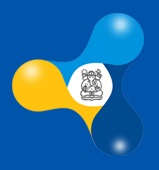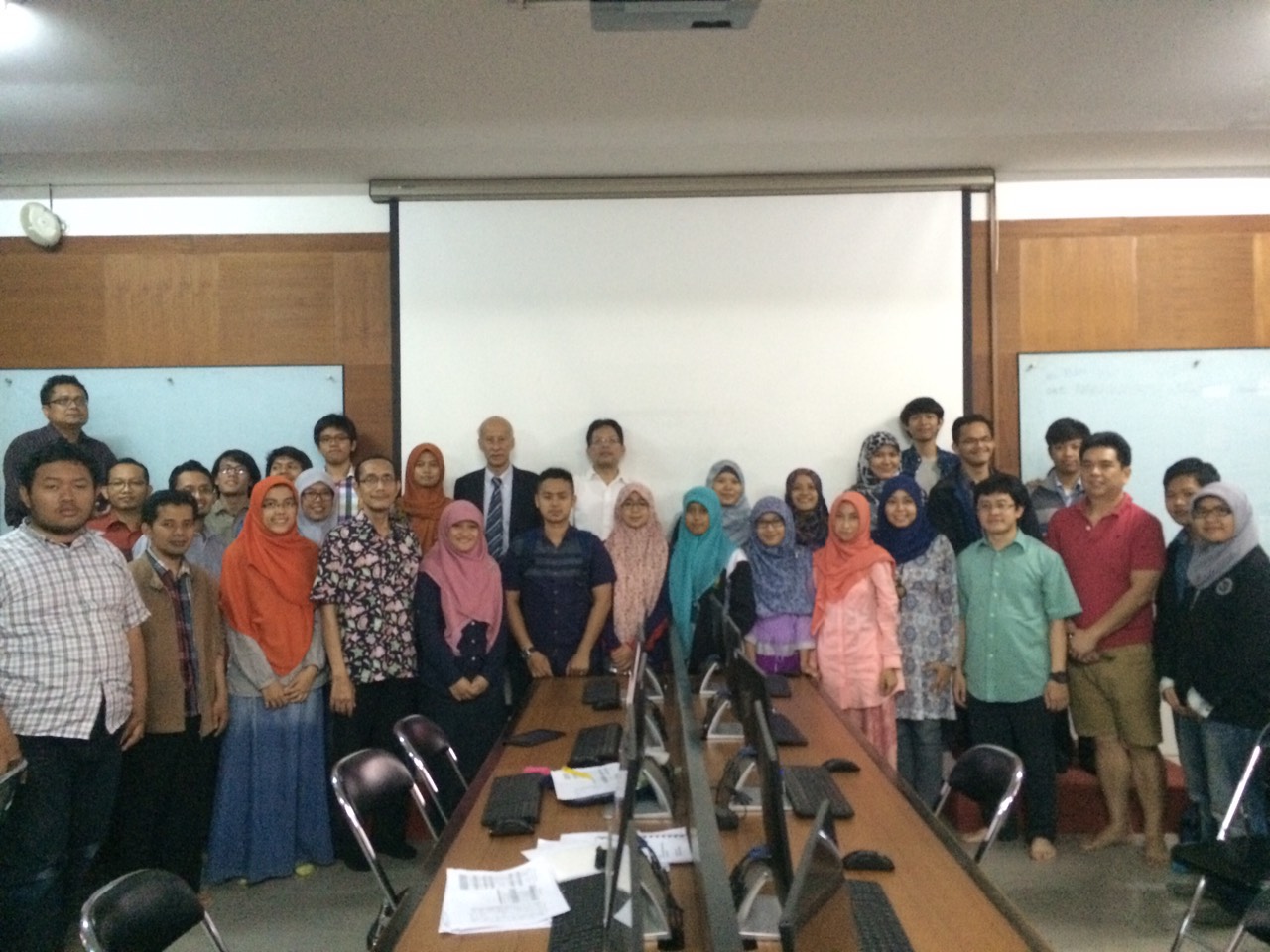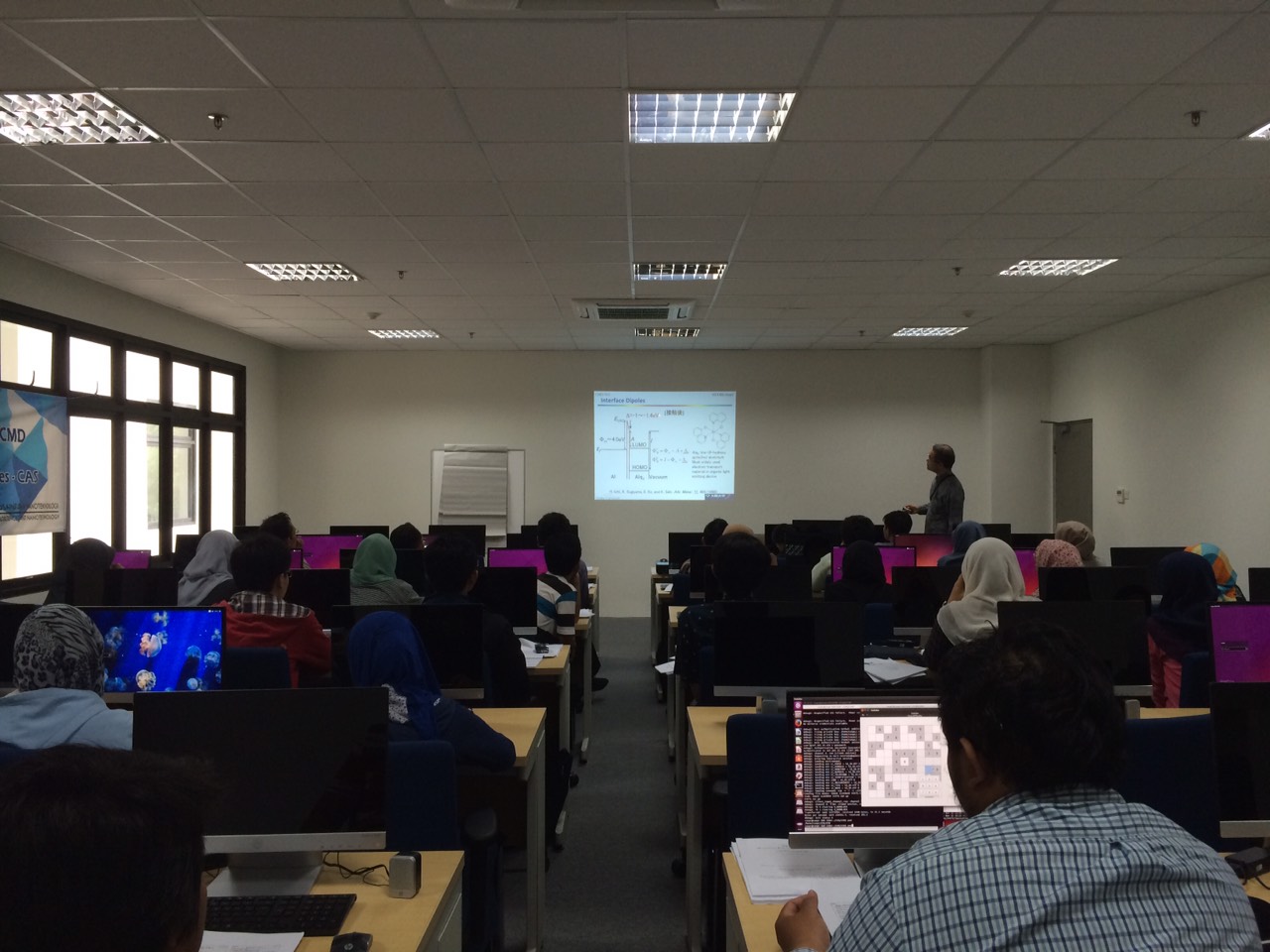ITB Symposium Workshop Nanotechnology & 2015 Presented the development of Nanotechnology in Indonesia

 BANDUNG, itb.ac.id-Nanotechnology is often touted as the future of technology that exists today. Its impact can appear in a wide range of sectors, from electronic technology to industrial sector even the interests of the military. Along with the development of nanotechnology in Indonesia, ITB Research Center for Nanosciences and Nanotechnology organized a Sym
BANDUNG, itb.ac.id-Nanotechnology is often touted as the future of technology that exists today. Its impact can appear in a wide range of sectors, from electronic technology to industrial sector even the interests of the military. Along with the development of nanotechnology in Indonesia, ITB Research Center for Nanosciences and Nanotechnology organized a Sym posium Workshop Nanotechnology & 2015. Symposium and workshop held on Tuesday through Thursday (10-12/11/15) discusses various research results surrounding the topic of nanotechnology and nanoscience in various fields. Therefore, the research results exposed the academics come from a variety field to study, such as Physics, Pharmaceutical Science and Technology, Physics Engineering, Chemistry Engineering, and more. On Wednesday-Thursday (11-12/11/15) the participants have the opportunity to a hands-on experience in Computational Materials Design (CMD) workshop which is housed in the Computer Room of CAS Building ITB.
posium Workshop Nanotechnology & 2015. Symposium and workshop held on Tuesday through Thursday (10-12/11/15) discusses various research results surrounding the topic of nanotechnology and nanoscience in various fields. Therefore, the research results exposed the academics come from a variety field to study, such as Physics, Pharmaceutical Science and Technology, Physics Engineering, Chemistry Engineering, and more. On Wednesday-Thursday (11-12/11/15) the participants have the opportunity to a hands-on experience in Computational Materials Design (CMD) workshop which is housed in the Computer Room of CAS Building ITB.Design the Material with Advanced Computing
The first topic presented in the CMD is the introduction of a software called Simulation Tool for Atom Technology (STATE)-Senri by Prof. Yoshitada Morikawa from Osaka University. The STATE uses the principle of density functional theory (DFT) that presented by Dr. Mohammad Kemal Agusta from ITB. The STATE has been found since 1985 and continue to be developed according to needs and technological developments. Application of density functional theory method has been used in various branches of science, such as research on Muhammad Rifqi Al Fauzan entitled "The Adsorption of Air Pollutants in the Form of Heavy Metals Pb on Ca-Montmorillonite using Density Functional Theory Method" was presented at the Symposium. In that study the particles with a size very small (nano-scale,-red), accuracy is an important specification. The DFT has been popular since the 1970s has been developed up to a certain accuracy and proper applied to various aspects of nanomaterial.
 The second day, CMD workshop was held in the Computer Laboratorium (4th floor) of Labtek 6 ITB and discusses modeling program and Naniwa Machikaneyama. With the derived equation from the muon subatomic particles, this Naniwa program by Dr. Hiroshi Nakanishi has specialization of modeling of small atoms such as hydrogen and lithium. Manipulating these atoms alone actually can bring up the new nanomaterial, markets, and industries. Treat hydrogen as a quantum particle allows its use as a renewable energy source. An example is the fuel cell and hydrogen storage that can be used as a renewable energy source that environmentally-friendly and weightless, so it can be applied on moving objects.
The second day, CMD workshop was held in the Computer Laboratorium (4th floor) of Labtek 6 ITB and discusses modeling program and Naniwa Machikaneyama. With the derived equation from the muon subatomic particles, this Naniwa program by Dr. Hiroshi Nakanishi has specialization of modeling of small atoms such as hydrogen and lithium. Manipulating these atoms alone actually can bring up the new nanomaterial, markets, and industries. Treat hydrogen as a quantum particle allows its use as a renewable energy source. An example is the fuel cell and hydrogen storage that can be used as a renewable energy source that environmentally-friendly and weightless, so it can be applied on moving objects.
 The next learned program of workshop is CMD Machikaneyama or AkaiKKR. This atomic modeling program that has been used in various countries is explained by its discoverer directly, namely Prof. Hisazumi Akai from Osaka University. Machikaneyama is a software package that be able to calculate the first principle of metal electronic structure, semiconductors and compounds, in the framework of the local density approximation or generalized gradient approximation (LDA/GGA) of DFT. Claimed as having high accuracy and speed, the software uses the functioning method of the KKR-Green. Method of the Korringa-Kohn-Rostoker (KKR) or the Green function method used because the Eigenvalue method perceived as unsuitable to quantum modeling that sometimes faces random structure. Tha Machikaneyama based probabilistic has been developed continuously since the late 1970s to the present by researchers under the Akai Group. Collaboration of ITB with researchers from Osaka University has allowed the presenting of Nanotechnology Symposium & Workshop 2015 that being rated very good to the development of nanotechnology in the academic environment of Indonesia. "CMD workshop uses bottom-up view that manipulated nanomaterial, then a larger scale. Through this event, the insight horizon of nanotechnology as a future technology, bigger-opened, "said Muhammad Unggul Karami (Engineering Physics), one of the workshop committee.
The next learned program of workshop is CMD Machikaneyama or AkaiKKR. This atomic modeling program that has been used in various countries is explained by its discoverer directly, namely Prof. Hisazumi Akai from Osaka University. Machikaneyama is a software package that be able to calculate the first principle of metal electronic structure, semiconductors and compounds, in the framework of the local density approximation or generalized gradient approximation (LDA/GGA) of DFT. Claimed as having high accuracy and speed, the software uses the functioning method of the KKR-Green. Method of the Korringa-Kohn-Rostoker (KKR) or the Green function method used because the Eigenvalue method perceived as unsuitable to quantum modeling that sometimes faces random structure. Tha Machikaneyama based probabilistic has been developed continuously since the late 1970s to the present by researchers under the Akai Group. Collaboration of ITB with researchers from Osaka University has allowed the presenting of Nanotechnology Symposium & Workshop 2015 that being rated very good to the development of nanotechnology in the academic environment of Indonesia. "CMD workshop uses bottom-up view that manipulated nanomaterial, then a larger scale. Through this event, the insight horizon of nanotechnology as a future technology, bigger-opened, "said Muhammad Unggul Karami (Engineering Physics), one of the workshop committee.

scan for download






